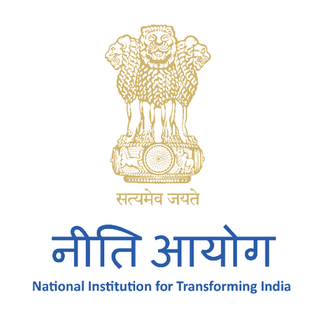Mark Grundy
Managing Director of Global Marketing & Communications

NITI Aayog and Rocky Mountain Institute Identify Pathways to Transform India’s Mobility System
Proposed solutions could accelerate India’s transition to a shared, electric, and connected mobility system, and support the wellbeing of India’s citizens, economy, and environment
New Delhi, November 22, 2017—Today NITI Aayog and Rocky Mountain Institute released the first two of a series of policy briefs addressing India’s obstacles and opportunities on the path to a shared, electric, and connected mobility future. The first report, “India’s Energy Storage Mission,” outlines a strategy for India to become a global hub of battery manufacturing. The second report, “Valuing Society First,” evaluates a “feebate” policy to incentivize the supply and demand of electric vehicles in India.
“India’s mobility transformation presents an enormous economic opportunity for India. Innovative business models and supportive policy frameworks can help make India a global hub for manufacturing electric vehicles and their components, accelerating this transition while creating jobs, strengthening Indian industry, and cleaning the air,” said Amitabh Kant, CEO NITI Aayog.
“While the global energy transition is already underway and moving with breathtaking speed, many forecasts have not taken into account India’s ambitions in mobility,” said James Newcomb, Managing Director (India) of Rocky Mountain Institute. He further added, “India has an opportunity not only to become one of the largest electric vehicle markets in the world, but also to support electric vehicle adoption globally.”
India’s Energy Storage Mission
In line with its aspiration to achieve 100% electric vehicle (EV) sales by 2030, India could become one of the world’s leaders in battery manufacturing. To do so, India will require a strategy to overcome its nascent position in battery manufacturing and, claim an increasing share of this industry’s value.
India’s leapfrog vision of a shared, electric, and connected mobility system could create a US$300 billion domestic market for electric vehicle (EV) batteries by 2030, representing nearly two-fifths of global EV battery demand according to a new report, “India’s Energy Storage Mission,” released by NITI Aayog and Rocky Mountain Institute.
Since a battery currently accounts for about one-third of an EV’s total purchase price, reducing battery costs through rapidly scaling production and standardizing battery
components could be a key element of long-term success for India’s automotive sector. Based on historic learning rates, demand for EV batteries in India could drive down global battery prices by as much as 16 percent to $60 per KWh by 2030 (compared to projections that do not include India’s EV goals).
The report estimates that India can capture 25–40% of the total economic opportunity represented by EV battery manufacturing under a scenario where India imports lithium-ion cells and assembles these cells into battery packs. As India’s battery manufacturing capabilities mature and supply chains develop, potentially with new battery chemistries, India has the opportunity to produce both cells and packs, while importing only the cathode or its raw materials. By following this path, India stands to capture nearly 80% (US$240 billion) of the economic opportunity over time.
Coordination among industry stakeholders and government can help to define a pathway to growth and competitiveness by establishing a shared technology roadmap, creating common standards, and aligning policies. In the report, NITI Aayog and RMI recommend that India create a consortium including representatives from the battery industry, OEMs, government, and subject experts.
The battery manufacturing report can be found at:
http://info.rmi.org/india_energy_storage_mission
Valuing Society First
India will require policies that support the auto sector’s transition to the mass production of efficient, clean vehicles that align with the government’s vision for 100% EV sales by 2030. A feebate—a policy by which inefficient vehicles incur a surcharge whilst efficient ones receive a rebate—can accelerate this transition by stimulating customer demand for EVs.
A feebate policy, optimized for India’s unique conditions, can incentivize robust production and widespread procurement of EVs without the use of public funds, according to a new report “Valuing Society First,” released by NITI Aayog and Rocky Mountain Institute.
Although CAFC standards mandate that automakers meet efficiency requirements, they do not reward manufacturers for exceeding these benchmarks. The report recommends a revenue-neutral, size-neutral feebate policy for India.
In addition to incentivizing improvements in vehicle efficiency, a feebate may also be able to incentivize shared mobility, according to the report. Sharing is an important part of India’s mobility vision and a powerful vector that has already made EVs economic in some regions.
While EVs could reach price parity with comparable ICE vehicles by 2025 due to rapidly falling battery prices, India has an opportunity to use a feebate policy to encourage
production of and demand for EVs today, potentially making India one of the world’s largest EV markets over time.
The feebate report can be found at:
http://info.rmi.org/india_valuing_society_first

About NITI Aayog
The National Institution for Transforming India, also called NITI Aayog, was formed via a resolution of the Union Cabinet on January 1, 2015. NITI Aayog is the premier policy ‘Think Tank’ of the Government of India, providing both directional and policy inputs. While designing strategic and long term policies and programmes for the Government of India, NITI Aayog also provides relevant technical advice to the Centre and States.

About Rocky Mountain Institute
Rocky Mountain Institute (RMI)—an independent nonprofit founded in 1982—transforms global energy use to create a clean, prosperous, and secure low-carbon future. It engages businesses, communities, institutions, and entrepreneurs to accelerate the adoption of market-based solutions that cost-effectively shift from fossil fuels to efficiency and renewables. RMI has offices in Basalt and Boulder, Colorado; New York City; Washington, D.C.; and Beijing.

